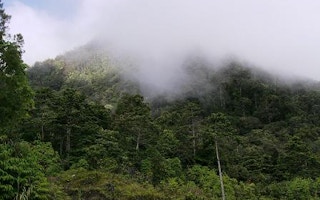Businesses need to lead in the absence of government incentives for sustainability, but they must do so in a way that is efficient, effective and equitable, said participants on the final day of the Business for the Environment Global Summit.
The conference brings together more than 700 people from business, government and NGOs to discuss ways they can contribute to environmental preservation. Key to those talks is a scheme to reduce emissions from deforestation and land degradation, or REDD.
First floated by the United Nations, REDD’s aim is to balance economic growth with environmental and social stability by providing financial incentives to save tropical rainforests, of which Indonesia has the world’s third largest.
Speaking at the opening of Friday’s summit, Heru Prasetyo, REDD’s task force secretary for Indonesia, called the country the “world’s REDD pilot,” making it a potentially significant player in the development of future REDD initiatives.
But the plan remains in its early stages, and often poses more challenges than solutions. Land-use policies are unclear, for example, and lax law enforcement has failed to stem forest encroachment.
The absence of a global carbon market has also raised concerns about financial incentives. For Frances Seymour, the director of the Indonesia-based Center for International Forestry Research (CIFOR), the real problem lies with governance.
There are currently no guidelines to create a level playing field for communities and industry, resolve land tenure issues or lay out a benefit-sharing regime that would ensure local communities get an equitable part of any land-use deal, she said.
Businesses can help resolve those issues, Ms Seymour added, but a two-year freeze on forest clearing is needed to give the government some time to fill the policy vacuum.
As part of a REDD+ agreement signed in Copenhagen in 2009, Indonesia agreed to a forest moratorium in return for up to $1 billion from Norway to help fund climate change mitigation efforts. That freeze was set to take effect in January this year, and its delay has sparked criticism from some that Indonesia is not capable of handling such a hefty investment.
Others say they appreciate that Indonesia is at least willing to start making promises.
At the opening of Friday’s talks Agus Purnomo, a presidential advisor on climate change, said Indonesia was committed to juggling the challenges ahead as it attempts to grow its economy while preserving its roughly 66 million hectares of primary forest, reducing greenhouse gas emissions and improving governance and community engagement.
The task is to bring democracy to the majority while protecting the basic rights of the minorities, Mr Purnomo said.
This is where REDD can play a role.
“REDD is a metaphor for society,” said Dorjee Sun, the head of Carbon Conservation, an advisory service for companies seeking to enter the carbon market. “If we don’t manage our natural assets at a sustainable level, we’re screwed.”
Mr Sun described what he called REDD 2.0, a way of looking at how REDD can be integrated into everyday activities. His company is currently helping Asia Pulp and Paper map its carbon footprint, from water consumption to the impact it has on the communities within its concessions.
“In the absence of government-led demand (for the purchase of carbon credits), we have to find a way to have businesses that need to work the land really invite the green spirit, and integrate it into their business model,” he said.
The challenges are many. A complex certification system and the lack of government investment in infrastructure are just a few of the obstacles businesses face when considering REDD.
“We know we need to follow it, because we need to have our product go green. But clear guidelines need to be there,” said See Teck Ann, chief executive officer of Rajawali Plantations.
Sun believes the demand for carbon credits – the financing mechanism behind REDD – will eventually materialise. And even if it doesn’t, he says businesses are beginning to realise social and environmental transformation can be to their comparative advantage.
Take monitoring and verification, said Seymour. By engaging with local communities, businesses and local governments don’t have to rely on high-tech mapping techniques to keep an eye on the forests.
That type of outreach is at the heart of REDD+’s mission. But the mention of such social initiatives ranked low during the B4E summit, raising a question from Greenpeace about whether REDD was merely another form of greenwashing.
Eco-Business.com’s coverage of the B4E Global Summit 2011 is brought to you by City Developments Ltd (CDL).
Click here to read all stories from the B4E Global Summit 2011.








